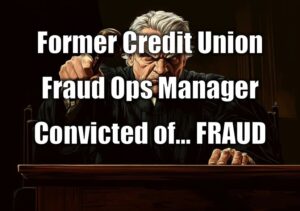
6th Circuit Court Rules Foreclosure Activities During “Dispute Letter” Period Violate the FDCPA – “For the foregoing reasons we find that Trott violated the FDCPA by continuing collection activities after receiving Scott’s Dispute Letter.”
Cincinnati, OH – January 11, 2019 – The 6th Circuit Court of Appeals made a ruling on the matter of “Kevin Scott v. Trott Law, P.C”, an FDCPA case involving the law firm, Trott Law, P.C, who was retained by Bank of America, as a debt collector to manage foreclosure proceedings on Scott’s mortgage due to nonpayment.
While the overall national impact of this ruling is yet to be seen, it does clearly infer that the “Dispute Letter” must “stop the clock” on all collection activities in process once the notice is received. The impact of this decision very well could find its way into auto repossession and legal activities as well in cases where this decision is quoted as source for precedence.
In June of 2016, a lower court ruled in favor of Bank of America in Kevin Scott v. Bank of America, N.A. et al, No. 15-2188, (6th Cir. Jun. 7, 2016). This original FDCPA lawsuit was based on four violations allegedly taken by Bank of America. This dismissal led to the retention of Trott Law, P.C. to proceed with the foreclosure.
On September 20, 2016, in compliance with the Fair Debt Collection Practices Act1 (FDCPA), Trott sent a Fair Debt Letter to Scott informing him of Trott’s role as a debt collector acting on behalf of its client, BANA, to foreclose on Scott’s mortgage for the total outstanding indebtedness of the mortgage.
On October 8, 2016, Scott asserted his right to submit to the debt collector a “Dispute Letter” requesting validation of debt. During this period, Trott Law, P.C, continued with foreclosure proceedings, posting the required foreclosure advertisements in a local newspaper on October 7, 14, 21, and 28th, the posting of a foreclosure notice on Scott’s home on the 14th and choosing not to cancel the sheriff’s sale date of November 8th, 2016.
In the court’s ruling, they stated; “Scott has strong grounds for this assertion. “If a purpose of an activity taken in relation to a debt is to ‘obtain payment’ of the debt, the activity is properly considered debt collection.” Glazer, 704 F.3d at 461. It is uncontested that these three activities are statutorily required under Michigan law. See Mich. Comp. Laws § 600.3201, § 600.3208, § 600.3216.”
The opinions of CUCollector are not to be considered as legal advice. Please refer to competent legal counsel before using this opinion as the basis for any legal action.
Read the decision HERE!
6th Circuit Court Rules Foreclosure Activities During “Dispute Letter” Period Violate the FDCPA










Facebook Comments